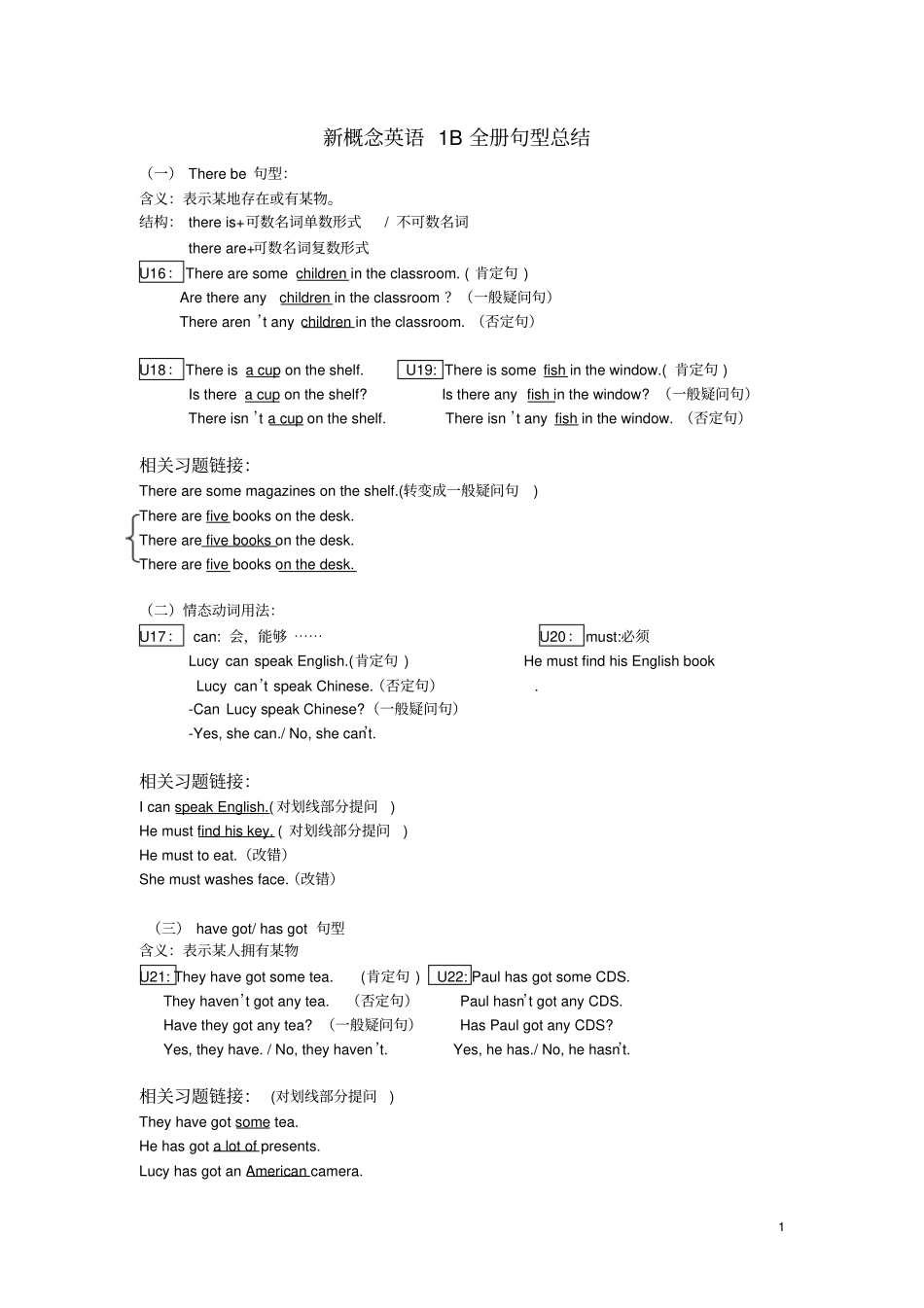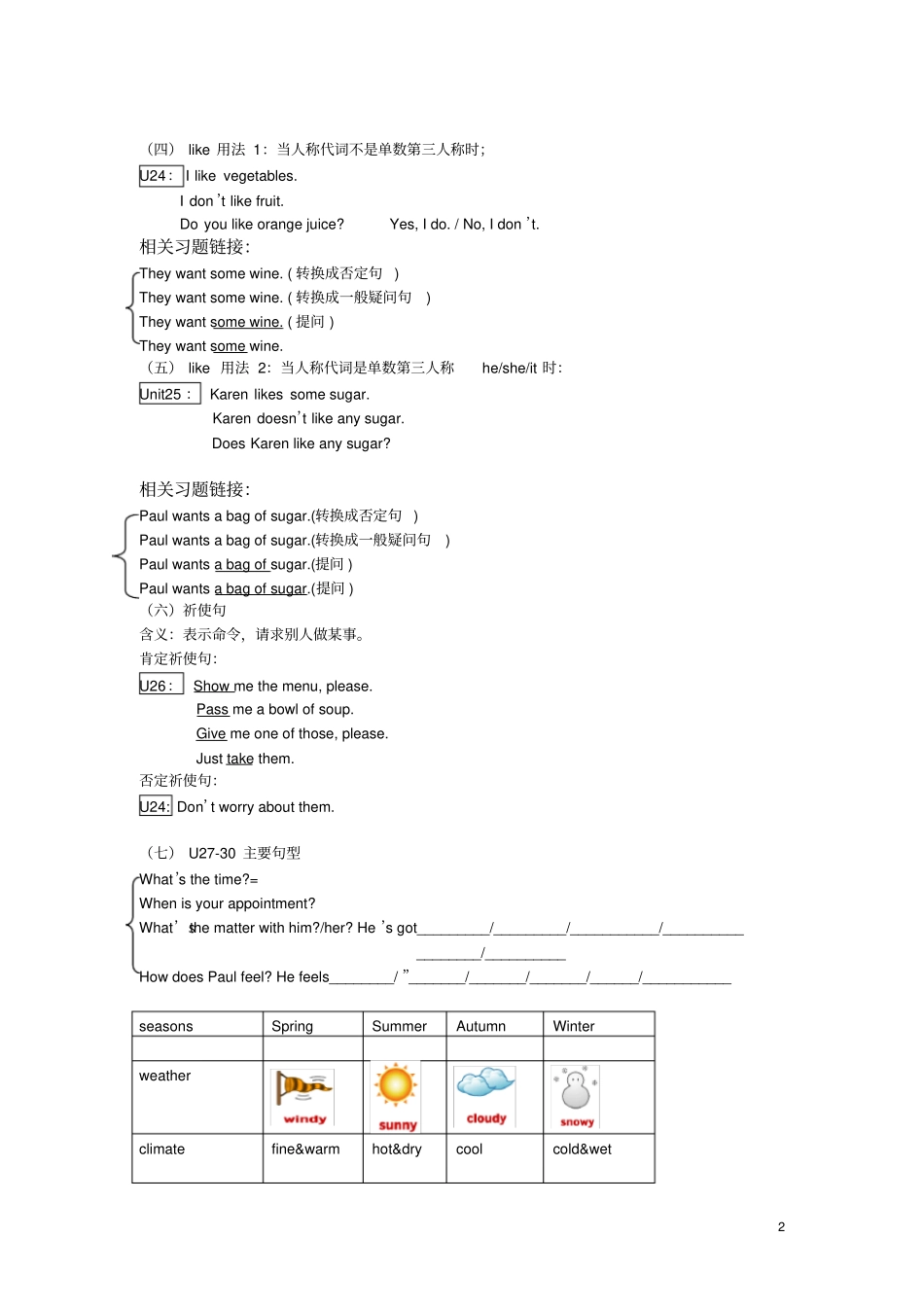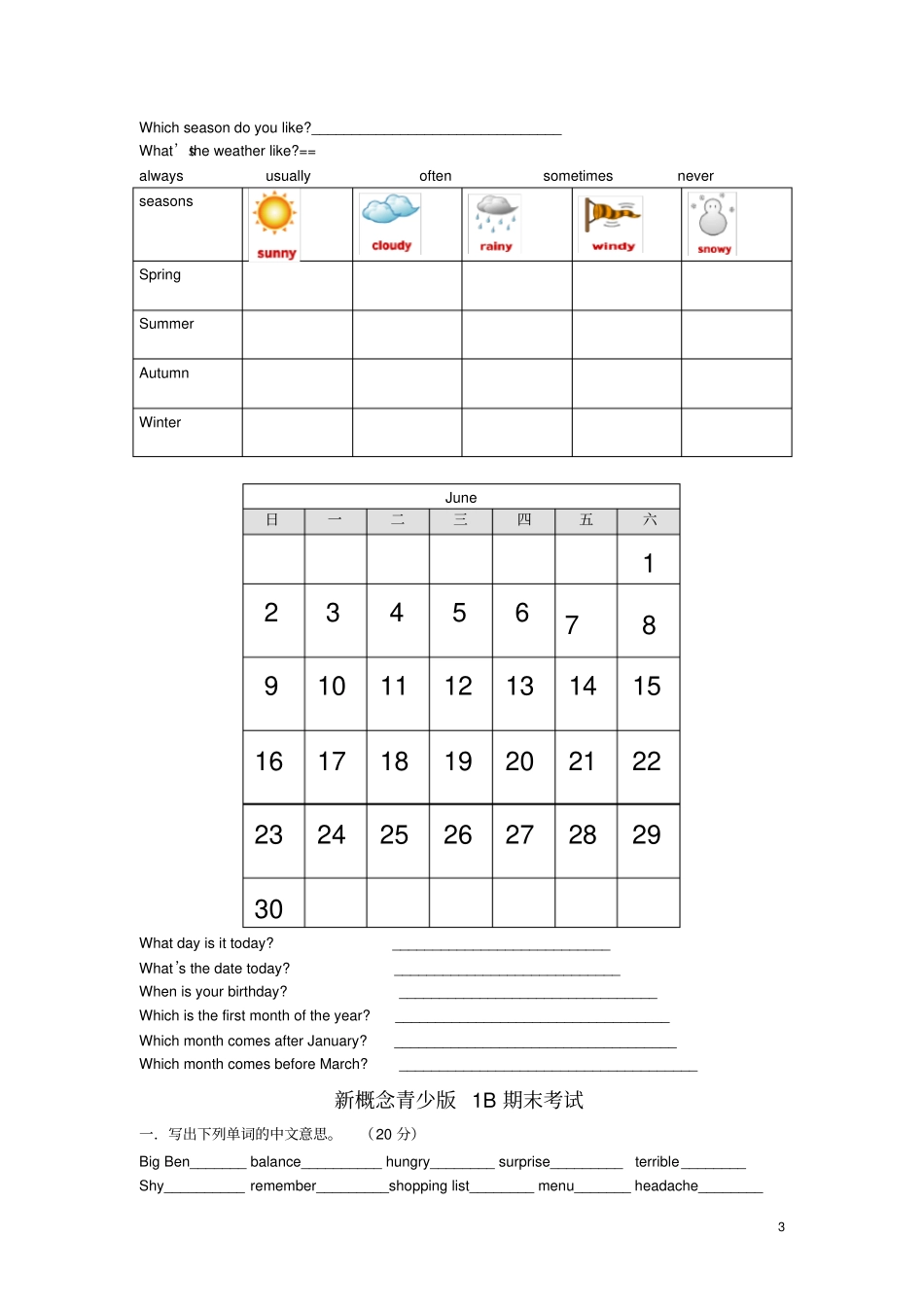1 新概念英语 1B 全册句型总结(一) There be 句型:含义:表示某地存在或有某物。结构: there is+可数名词单数形式/ 不可数名词there are+可数名词复数形式U16: There are some children in the classroom. ( 肯定句 ) Are there any children in the classroom ?(一般疑问句)There aren ’t any children in the classroom. (否定句)U18: There is a cup on the shelf. U19: There is some fish in the window.( 肯定句 ) Is there a cup on the shelf? Is there any fish in the window? (一般疑问句)There isn ’t a cup on the shelf. There isn ’t any fish in the window. (否定句)相关习题链接:There are some magazines on the shelf.(转变成一般疑问句) There are five books on the desk. There are five books on the desk. There are five books on the desk. (二)情态动词用法:U17: can: 会,能够 ⋯⋯U20: must:必须Lucy can speak English.(肯定句 ) He must find his English book Lucy can’t speak Chinese.(否定句). -Can Lucy speak Chinese?(一般疑问句)-Yes, she can./ No, she can’t. 相关习题链接:I can speak English.( 对划线部分提问) He must find his key. ( 对划线部分提问) He must to eat.(改错)She must washes face.(改错)(三) have got/ has got 句型含义:表示某人拥有某物U21: They have got some tea. (肯定句 ) U22: Paul has got some CDS. They haven’t got any tea. (否定句)Paul hasn’t got any CDS. Have they got any tea? (一般疑问句)Has Paul got any CDS? Yes, they have. / No, they haven’t. Yes, he has./ No, he hasn’t. 相关习题链接: (对划线部分提问) They have got some tea. He has got a lot of presents. Lucy has got an American camera. 2 (四) like 用法 1:当人称代词不是单数第三人称时;U24: I like vegetables. I don ’t like fruit. Do you like orange juice? Yes, I do. / No, I don ’t. 相关习题链接:They want some wine. ( 转换成否定句...


